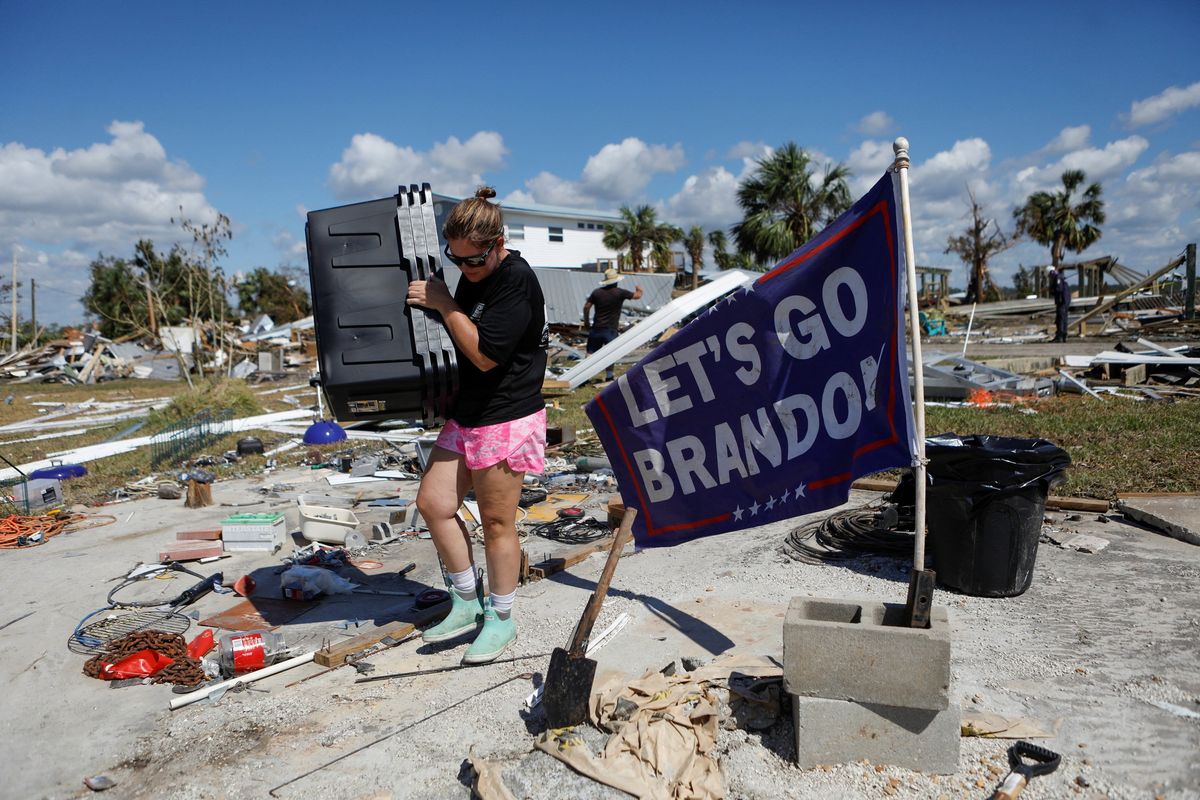
Donald Trump's mass deportations and threats against federal disaster relief could decimate efforts to rebuild after wildfires and floods in multiple states, including some that backed the newly inaugurated president.
Thousands and thousands of homes have been destroyed or damaged across the U.S. by climate-fueled disasters in California, Florida, Georgia, North Carolina and Texas, and in each state recovery depends on restoration or resilience workers who travel from place to place cleaning up and rebuilding in hazardous conditions, reported The Guardian.
“Like farm workers in the fields, immigrants are indispensable to fire, flood and hurricane recovery in the US. There is absolutely no rebuilding without them,” said Saket Soni, director of Resilience Force, a labor organization with nearly 4,000 members.
ALSO READ: Top GOPer's ‘most immediate’ priority for new committee includes probing a MAGA conspiracy
“Mass deportations would completely upend the ongoing recovery in Florida, Louisiana and North Carolina from last year’s hurricanes, it would stall the rebuilding of LA after fires," Soni added. "At this point, anyone anywhere is at risk of having their home impacted by a climate disaster. So everyone needs these skilled workers.”
The disaster industry is growing as extreme weather events increase in frequency and intensity, but Trump's anti-immigration crackdown could decimate the resilience workforce made up of tens of thousands of mostly skilled, foreign-born workers from all over the world, and labor shortages could also disrupt the construction, food and hospitality industries.
“The deportations plan is so out of touch with the reality of the victims, who without immigrants will continue to spend months, maybe years in hotels living out of pocket," Soni said. "Recovery often makes the poor even poorer and getting back into your home is the key safeguard against spiraling inequality."
“We’re headed for a moment where there’ll be a reckoning between such political ploys and reality," Soni added, "and at some point this will become a moral question rather than a political one.”
Trump also suggested he would close down the Federal Emergency Management Agency (FEMA) as he toured North Carolina, saying individual states should be responsible for disaster relief, but the estimated cost of the damage from Hurricane Helene to that state and six others that all voted for him totaled $60 billion, while the estimated damage in the Los Angeles area has reached at least $275 billion.
“Abolishing FEMA would invite a pretty major response over the next few years because no state will absorb that amount of responsibility or spending," Soni said. "The states would rise up – especially the very red states like Florida, Texas and Louisiana that this administration counts on for its constituents and where disasters happen again and again."
“We will need FEMA to be bigger, not smaller," he added. "Any resident who’s been through a hurricane or wildfire, whether Democrat or Republican, will agree with that. Fires aren’t making a distinction between political parties. We have Republicans in California who need FEMA just as much as the Democrats.”




